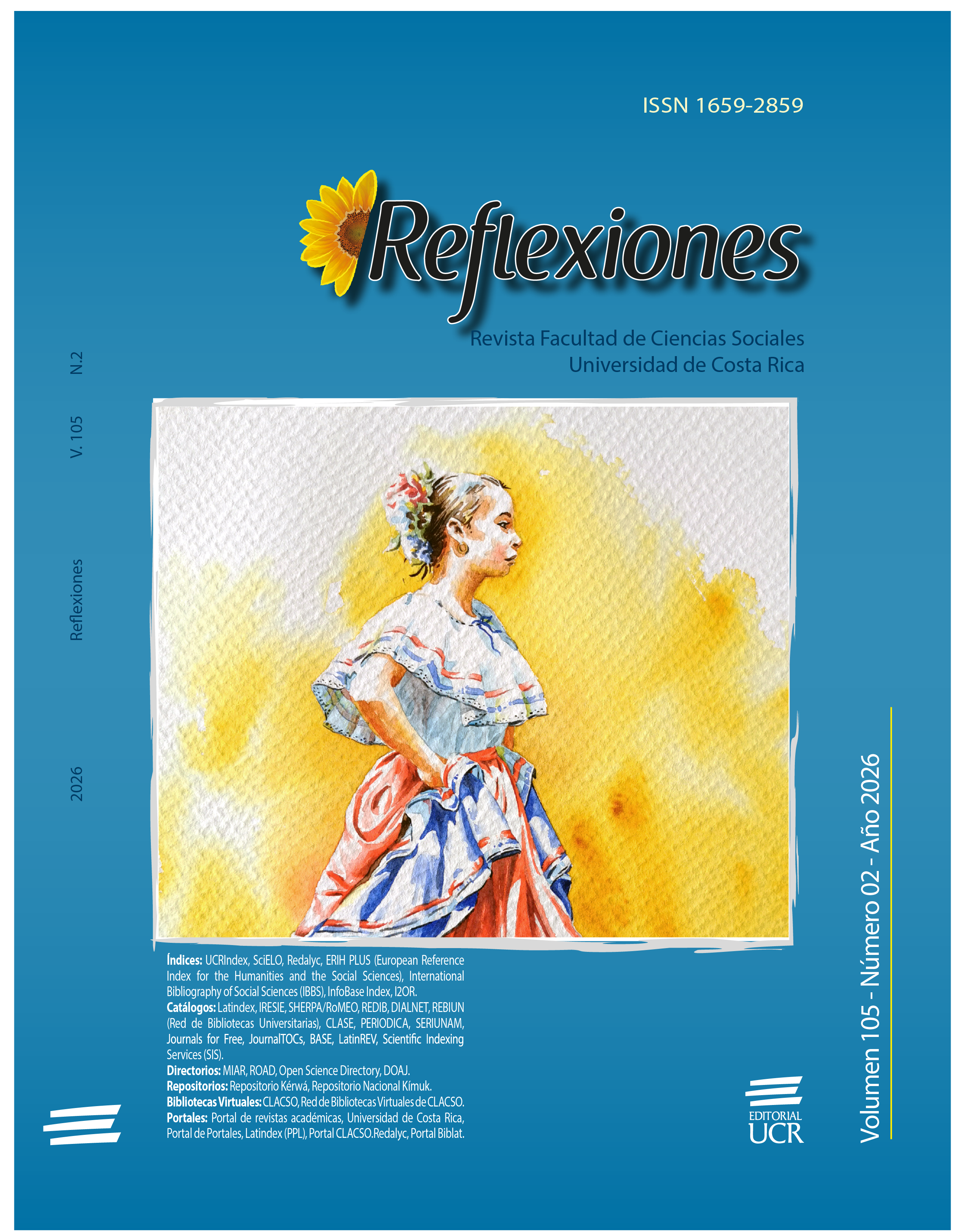The driving forces of climate change: a comparison of sociological approaches
DOI:
https://doi.org/10.15517/agj9dy83Keywords:
Global warming, Causality, Influx, Production, MetabolismAbstract
Introduction: This article proposes to provide a map of the sociological approach to the climate crisis, focusing on the problem of causality. It attempts to clarify why the phenomenon of global warming has occurred and how a synthesis of sociological approaches can be developed to allow for a better understanding of it.
Objective: It proposes to show the various forms of sociological approach to the causality of the environmental crisis, initially undifferentiated from the climate crisis, and proceeds to contrast the theories that seek to explain this causality.
Method and Technique: Starting from a critical eclecticism, this article seeks to present a map of the sociological approach to the causes of global warming by identifying historical phases and contrasting theoretical approaches, as a triangulation, in light of criteria such as the critique of traditional theory, the reference to environmental and climate justice, and the framework within a methodological cosmopolitanism.
Results: This paper presents an orderly description of the phases of this approach, and, as a result of comparing the approaches, identifies the theories that demonstrate the greatest and least consistency.
Conclusion: The validity of the theoretical approaches is recognized for explaining the problem of causality with a conceptual density and logical consistency that aims to contribute to producing sociologically grounded research proposals on a central issue such as climate change.
Downloads
Published
Issue
Section
License
Copyright (c) 2025 Luis Alfonso Chávarro (Autor/a)

This work is licensed under a Creative Commons Attribution-NonCommercial-NoDerivatives 4.0 International License.
Open Access Magazines Proposed Policy
The authors who publish in Reflexiones Journal agree with the following terms:
a. The authors preserve the article´s copyright and grant the journal its first publication. The work [SPECIFY PERIOD OF TIME] must be licensed after its publication under a:
a. The authors retain the copyright and grant to the journal the right of first publication, with the work [SPECIFY PERIOD OF TIME] as well as after publication is licensed under a Creative Common CC BY-NC-ND 4.0 DEED (Attribution-NonCommercial-NoDerivs 4.0 Internationa) that allows others to share the work with an acknowledgment of authorship of the work and initial publication in this journal.
b. The authors can separately establish additional agreements for the non-exclusive distribution of the published version (for example, place it in an institutional repository or publish it in a book), but, as stated above, with the recognition of its initial publication in this magazine.
c. Authors are allowed and encouraged to circulate their work electronically (for example, in institutional repositories or on their own website) before and during the submission process, as it can lead to productive exchanges, as well as an earlier and greater citation of their published works (See The Effect of Open Access).
d. Reflexiones Journal does not apply any fee or charge for the publishing process.
The authors who send their manuscripts to be evaluated by Reflexiones Journal, assign to it the publication rights for the article’s circulation in printed version or digital format. By being part of multiple indexers, databases and reference systems, the articles that are published by this journal will be available and downloaded from these websites, indicating, in all cases, the articles’ authorship, date of publication, and the number to which they correspond. All the documents published by Reflexiones can be downloaded on the journal’s website: https://revistas.ucr.ac.cr/index.php/reflexiones, and in all the databases where it is indexed.
The journal respects and follows all of the established by the Law No. 6683 Law on Copyright and Related Rights of the Republic of Costa Rica, as well as its reform in the 7979 Law.
Finally, Reflexiones applies in its publications the Creative Commons License, which can be consulted in the following link: https://creativecommons.org/licenses/by-nc-nd/4.0/deed.en





